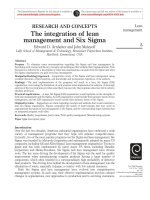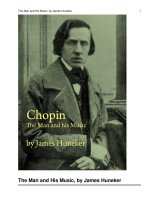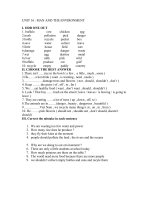Man and wife
Bạn đang xem bản rút gọn của tài liệu. Xem và tải ngay bản đầy đủ của tài liệu tại đây (2.31 MB, 597 trang )
TheProjectGutenbergEBookofManandWife,byWilkieCollins
ThiseBookisfortheuseofanyoneanywhereatnocostandwith
almostnorestrictionswhatsoever.Youmaycopyit,giveitawayor
re-useitunderthetermsoftheProjectGutenbergLicenseincluded
withthiseBookoronlineatwww.gutenberg.org
Title:ManandWife
Author:WilkieCollins
ReleaseDate:February21,2006[EBook#1586]
LastUpdated:September11,2016
Language:English
***STARTOFTHISPROJECTGUTENBERGEBOOKMANANDWIFE***
ProducedbyJamesRuskandDavidWidger
MANANDWIFE
byWilkieCollins
CONTENTS
PROLOGUE.—THEIRISHMARRIAGE.
ParttheFirst.
ParttheSecond.
THESTORY.
FIRSTSCENE.—THESUMMER-HOUSE.
CHAPTERTHEFIRST.
CHAPTERTHESECOND.
CHAPTERTHETHIRD.
CHAPTERTHEFOURTH.
CHAPTERTHEFIFTH.
CHAPTERTHESIXTH.
CHAPTERTHESEVENTH.
CHAPTERTHEEIGHTH.
SECONDSCENE.—THEINN.
CHAPTERTHENINTH.
CHAPTERTHETENTH.
CHAPTERTHEELEVENTH.
CHAPTERTHETWELFTH.
CHAPTERTHETHIRTEENTH.
THIRDSCENE.—LONDON.
CHAPTERTHEFOURTEENTH.
CHAPTERTHEFIFTEENTH.
CHAPTERTHESIXTEENTH.
FOURTHSCENE.—WINDYGATES.
CHAPTERTHESEVENTEENTH
CHAPTERTHEEIGHTEENTH.
CHAPTERTHENINETEENTH.
CHAPTERTHETWENTIETH.
CHAPTERTHETWENTY-FIRST.
CHAPTERTHETWENTY-SECOND.
CHAPTERTHETWENTY-THIRD.
CHAPTERTHETWENTY-FOURTH.
CHAPTERTHETWENTY-FIFTH.
CHAPTERTHETWENTY-SIXTH.
CHAPTERTHETWENTY-SEVENTH.
CHAPTERTHETWENTY-EIGHTH.
FIFTHSCENE.—GLASGOW.
CHAPTERTHETWENTY-NINTH.
CHAPTERTHETHIRTIETH.
SIXTHSCENE.—SWANHAVENLODGE.
CHAPTERTHETHIRTY-FIRST
CHAPTERTHETHIRTY-SECOND.
CHAPTERTHETHIRTY-THIRD.
SEVENTHSCENE.—HAMFARM.
CHAPTERTHETHIRTY-FOURTH.
CHAPTERTHETHIRTY-FIFTH.
CHAPTERTHETHIRTY-SIXTH.
CHAPTERTHETHIRTY-SEVENTH.
CHAPTERTHETHIRTY-EIGHTH.
EIGHTHSCENE—THEPANTRY.
CHAPTERTHETHIRTY-NINTH.
NINTHSCENE.—THEMUSIC-ROOM.
CHAPTERTHEFORTIETH.
TENTHSCENE—THEBEDROOM.
CHAPTERTHEFORTY-FIRST.
ELEVENTHSCENE.—SIRPATRICK’SHOUSE.
CHAPTERTHEFORTY-SECOND.
CHAPTERTHEFORTY-THIRD.
TWELFTHSCENE.—DRURYLANE.
CHAPTERTHEFORTY-FOURTH.
THIRTEENTHSCENE.—FULHAM.
CHAPTERTHEFORTY-FIFTH.
FOURTEENTHSCENE.—PORTLANDPLACE.
CHAPTERTHEFORTY-SIXTH.
FIFTEENTHSCENE.—HOLCHESTERHOUSE.
CHAPTERTHEFORTY-SEVENTH.
SIXTEENTHSCENE.—SALTPATCH.
CHAPTERTHEFORTY-EIGHTH.
CHAPTERTHEFORTY-NINTH.
CHAPTERTHEFIFTIETH.
CHAPTERTHEFIFTY-FIRST.
CHAPTERTHEFIFTY-SECOND.
CHAPTERTHEFIFTY-THIRD.
CHAPTERTHEFIFTY-FOURTH.
CHAPTERTHEFIFTY-FIFTH.
CHAPTERTHEFIFTY-SIXTH.
CHAPTERTHEFIFTY-SEVENTH.
EPILOGUE.
PROLOGUE.—THEIRISHMARRIAGE.
ParttheFirst.
THEVILLAATHAMPSTEAD.I.
ONasummer’smorning,betweenthirtyandfortyyearsago,twogirlswere
crying bitterly in the cabin of an East Indian passenger ship, bound outward,
fromGravesendtoBombay.
They were both of the same age—eighteen. They had both, from childhood
upward,beencloseanddearfriendsatthesameschool.Theywerenowparting
forthefirsttime—andparting,itmightbe,forlife.
ThenameofonewasBlanche.ThenameoftheotherwasAnne.
Both were the children of poor parents, both had been pupil-teachers at the
school;andbothweredestinedtoearntheirownbread.Personallyspeaking,and
sociallyspeaking,theseweretheonlypointsofresemblancebetweenthem.
Blanchewaspassablyattractiveandpassablyintelligent,andnomore.Anne
wasrarelybeautifulandrarelyendowed.Blanche’sparentswereworthypeople,
whosefirstconsiderationwastosecure,atanysacrifice,thefuturewell-beingof
their child. Anne’s parents were heartless and depraved. Their one idea, in
connectionwiththeirdaughter,wastospeculateonherbeauty,andtoturnher
abilitiestoprofitableaccount.
Thegirlswerestartinginlifeunderwidelydifferentconditions.Blanchewas
going to India, to be governess in the household of a Judge, under care of the
Judge’s wife. Anne was to wait at home until the first opportunity offered of
sendinghercheaplytoMilan.There,amongstrangers,shewastobeperfectedin
theactress’sandthesinger’sart;thentoreturntoEngland,andmakethefortune
ofherfamilyonthelyricstage.
Such were the prospects of the two as they sat together in the cabin of the
Indiaman locked fast in each other’s arms, and crying bitterly. The whispered
farewelltalkexchangedbetweenthem—exaggeratedandimpulsiveasgirls’talk
isapttobe—camehonestly,ineachcase,straightfromtheheart.
“Blanche!youmaybemarriedinIndia.Makeyourhusbandbringyoubackto
England.”
“Anne!youmaytakeadisliketothestage.ComeouttoIndiaifyoudo.”
“InEnglandoroutofEngland,marriedornotmarried,wewillmeet,darling
—if it’s years hence—with all the old love between us; friends who help each
other,sisterswhotrusteachother,forlife!Vowit,Blanche!”
“Ivowit,Anne!”
“Withallyourheartandsoul?”
“Withallmyheartandsoul!”
Thesailswerespreadtothewind,andtheshipbegantomoveinthewater.It
was necessary to appeal to the captain’s authority before the girls could be
parted. The captain interfered gently and firmly. “Come, my dear,” he said,
puttinghisarmroundAnne;“youwon’tmindme!Ihavegotadaughterofmy
own.”Anne’sheadfellonthesailor’sshoulder.Heputher,withhisownhands,
intotheshore-boatalongside.Infiveminutesmoretheshiphadgatheredway;
theboatwasatthelanding-stage—andthegirlshadseenthelastofeachother
formanyalongyeartocome.
Thiswasinthesummerofeighteenhundredandthirty-one.
II.
Twenty-fouryearslater—inthesummerofeighteenhundredandfifty-five—
therewasavillaatHampsteadtobelet,furnished.
The house was still occupied by the persons who desired to let it. On the
eveningonwhichthissceneopensaladyandtwogentlemenwereseatedatthe
dinner-table.Theladyhadreachedthematureageofforty-two.Shewasstilla
rarely beautiful woman. Her husband, some years younger than herself, faced
her at the table, sitting silent and constrained, and never, even by accident,
looking at his wife. The third person was a guest. The husband’s name was
Vanborough.Theguest’snamewasKendrew.
It was the end of the dinner. The fruit and the wine were on the table. Mr.
VanboroughpushedthebottlesinsilencetoMr.Kendrew.Theladyofthehouse
looked round at the servant who was waiting, and said, “Tell the children to
comein.”
Thedooropened,andagirltwelveyearsoldentered,lendingbythehanda
youngergirloffive.Theywerebothprettilydressedinwhite,withsashesofthe
same shade of light blue. But there was no family resemblance between them.
Theeldergirlwasfrailanddelicate,withapale,sensitiveface.Theyoungerwas
lightandflorid,withroundredcheeksandbright,saucyeyes—acharminglittle
pictureofhappinessandhealth.
Mr.Kendrewlookedinquiringlyattheyoungestofthetwogirls.
“Hereisayounglady,”hesaid,“whoisatotalstrangertome.”
“Ifyouhadnotbeenatotalstrangeryourselfforawholeyearpast,”answered
Mrs. Vanborough, “you would never have made that confession. This is little
Blanche—the only child of the dearest friend I have. When Blanche’s mother
andIlastsaweachotherweweretwopoorschool-girlsbeginningtheworld.My
friendwenttoIndia,andmarriedtherelateinlife.Youmayhaveheardofher
husband—the famous Indian officer, Sir Thomas Lundie? Yes: ‘the rich Sir
Thomas,’asyoucallhim.LadyLundieisnowonherwaybacktoEngland,for
the first time since she left it—I am afraid to say how many years since. I
expectedheryesterday;Iexpectherto-day—shemaycomeatanymoment.We
exchangedpromisestomeet,intheshipthattookhertoIndia—‘vows’wecalled
theminthedearoldtimes.Imaginehowchangedweshallfindeachotherwhen
wedomeetagainatlast!”
“Inthemeantime,”saidMr.Kendrew,“yourfriendappearstohavesentyou
herlittledaughtertorepresenther?It’salongjourneyforsoyoungatraveler.”
“A journey ordered by the doctors in India a year since,” rejoined Mrs.
Vanborough.“TheysaidBlanche’shealthrequiredEnglishair.SirThomaswas
ill at the time, and his wife couldn’t leave him. She had to send the child to
England,andwhoshouldshesendhertobutme?Lookathernow,andsayifthe
Englishairhasn’tagreedwithher!Wetwomothers,Mr.Kendrew,seemliterally
toliveagaininourchildren.Ihaveanonlychild.Myfriendhasanonlychild.
MydaughterislittleAnne—asIwas.Myfriend’sdaughterislittleBlanche—as
shewas.And,tocrownitall,thosetwogirlshavetakenthesamefancytoeach
otherwhichwetooktoeachotherintheby-gonedaysatschool.Onehasoften
heardofhereditaryhatred.Istheresuchathingashereditaryloveaswell?”
Beforetheguestcouldanswer,hisattentionwasclaimedbythemasterofthe
house.
“Kendrew,” said Mr. Vanborough, “when you have had enough of domestic
sentiment,supposeyoutakeaglassofwine?”
Thewordswerespokenwithundisguisedcontemptoftoneandmanner.Mrs.
Vanborough’s color rose. She waited, and controlled the momentary irritation.
When she spoke to her husband it was evidently with a wish to soothe and
conciliatehim.
“Iamafraid,mydear,youarenotwellthisevening?”
“Ishallbebetterwhenthosechildrenhave doneclattering withtheirknives
andforks.”
Thegirlswerepeelingfruit.Theyoungeronewenton.Theelderstopped,and
lookedathermother.Mrs.VanboroughbeckonedtoBlanchetocometoher,and
pointedtowardtheFrenchwindowopeningtothefloor.
“Wouldyouliketoeatyourfruitinthegarden,Blanche?”
“Yes,”saidBlanche,“ifAnnewillgowithme.”
Anneroseatonce,andthetwogirlswentawaytogetherintothegarden,hand
in hand. On their departure Mr. Kendrew wisely started a new subject. He
referredtothelettingofthehouse.
“Thelossofthegardenwillbeasadlosstothosetwoyoungladies,”hesaid.
“Itreallyseemstobeapitythatyoushouldbegivingupthisprettyplace.”
“Leaving the house is not the worst of the sacrifice,” answered Mrs.
Vanborough.“IfJohnfindsHampsteadtoofarforhimfromLondon,ofcourse
wemustmove.TheonlyhardshipthatIcomplainofisthehardshipofhaving
thehousetolet.”
Mr. Vanborough looked across the table, as ungraciously as possible, at his
wife.
“Whathaveyoutodowithit?”heasked.
Mrs.Vanboroughtriedtocleartheconjugalhorizonbyasmile.
“MydearJohn,”shesaid,gently,“youforgetthat,whileyouareatbusiness,I
amhereallday.Ican’thelpseeingthepeoplewhocometolookatthehouse.
Such people!” she continued, turning to Mr. Kendrew. “They distrust every
thing,fromthescraperatthedoortothechimneysontheroof.Theyforcetheir
way in at all hours. They ask all sorts of impudent questions—and they show
youplainlythattheydon’tmeantobelieveyouranswers,beforeyouhavetime
to make them. Some wretch of a woman says, ‘Do you think the drains are
right?’—andsniffssuspiciously,beforeIcansayYes.Somebruteofamanasks,
‘Areyouquitesurethishouseissolidlybuilt,ma’am?’—andjumpsonthefloor
atthefullstretchofhislegs,withoutwaitingformetoreply.Nobodybelievesin
our gravel soil and our south aspect. Nobody wants any of our improvements.
ThemomenttheyhearofJohn’sArtesianwell,theylookasiftheyneverdrank
water. And, if they happen to pass my poultry-yard, they instantly lose all
appreciationofthemeritsofafreshegg!”
Mr.Kendrewlaughed.“Ihavebeenthroughitallinmytime,”hesaid.“The
peoplewhowanttotakeahousearethebornenemiesofthepeoplewhowantto
letahouse.Odd—isn’tit,Vanborough?”
Mr. Vanborough’s sullen humor resisted his friend as obstinately as it had
resistedhiswife.
“Idaresay,”heanswered.“Iwasn’tlistening.”
Thistimethetonewasalmostbrutal.Mrs.Vanboroughlookedatherhusband
withunconcealedsurpriseanddistress.
“John!”shesaid.“Whatcanbethematterwithyou?Areyouinpain?”
“A man may be anxious and worried, I suppose, without being actually in
pain.”
“Iamsorrytohearyouareworried.Isitbusiness?”
“Yes—business.”
“ConsultMr.Kendrew.”
“Iamwaitingtoconsulthim.”
Mrs. Vanborough rose immediately. “Ring, dear,” she said, “when you want
coffee.”Asshepassedherhusbandshestoppedandlaidherhandtenderlyonhis
forehead. “I wish I could smooth out that frown!” she whispered. Mr.
Vanboroughimpatientlyshookhishead.Mrs.Vanboroughsighedassheturned
tothedoor.Herhusbandcalledtoherbeforeshecouldleavetheroom.
“Mindwearenotinterrupted!”
“Iwilldomybest,John.”ShelookedatMr.Kendrew,holdingthedooropen
for her; and resumed, with an effort, her former lightness of tone. “But don’t
forget our ‘born enemies!’ Somebody may come, even at this hour of the
evening,whowantstoseethehouse.”
The two gentlemen were left alone over their wine. There was a strong
personalcontrastbetweenthem.Mr.Vanboroughwastallanddark—adashing,
handsome man; with an energy in his face which all the world saw; with an
inbred falseness under it which only a special observer could detect. Mr.
Kendrew was short and light—slow and awkward in manner, except when
something happened to rouse him. Looking in his face, the world saw an ugly
and undemonstrative little man. The special observer, penetrating under the
surface,foundafinenaturebeneath,restingonasteadyfoundationofhonorand
truth.
Mr.Vanboroughopenedtheconversation.
“Ifyouevermarry,”hesaid,“don’tbesuchafool,Kendrew,asIhavebeen.
Don’ttakeawifefromthestage.”
“IfIcouldgetsuchawifeasyours,”repliedtheother,“Iwouldtakeherfrom
the stage to-morrow. A beautiful woman, a clever woman, a woman of
unblemishedcharacter,andawomanwhotrulylovesyou.Manalive!whatdo
youwantmore?”
“Iwantagreatdealmore.Iwantawomanhighlyconnectedandhighlybred
—awomanwhocanreceivethebestsocietyinEngland,andopenherhusband’s
waytoapositionintheworld.”
“A position in the world!” cried Mr. Kendrew. “Here is a man whose father
has left him half a million of money—with the one condition annexed to it of
takinghisfather’splaceattheheadofoneofthegreatestmercantilehousesin
England. And he talks about a position, as if he was a junior clerk in his own
office! What on earth does your ambition see, beyond what your ambition has
alreadygot?”
Mr.Vanboroughfinishedhisglassofwine,andlookedhisfriendsteadilyin
theface.
“My ambition,” he said, “sees a Parliamentary career, with a Peerage at the
endofit—andwithnoobstacleinthewaybutmyestimablewife.”
Mr.Kendrewliftedhishandwarningly.“Don’ttalkinthatway,”hesaid.“If
you’rejoking—it’sajokeIdon’tsee.Ifyou’reinearnest—youforceasuspicion
onmewhichIwouldrathernotfeel.Letuschangethesubject.”
“No!Letushaveitoutatonce.Whatdoyoususpect?”
“Isuspectyouaregettingtiredofyourwife.”
“She is forty-two, and I am thirty-five; and I have been married to her for
thirteenyears.Youknowallthat—andyouonlysuspectIamtiredofher.Bless
yourinnocence!Haveyouanythingmoretosay?”
“Ifyouforcemetoit,Itakethefreedomofanoldfriend,andIsayyouare
not treating her fairly. It’s nearly two years since you broke up your
establishment abroad, and came to England on your father’s death. With the
exception of myself, and one or two other friends of former days, you have
presentedyourwifetonobody.Yournewpositionhassmoothedthewayforyou
intothebestsociety.Younevertakeyour wifewithyou.Yougooutasifyou
wereasingleman.Ihavereasontoknowthatyouareactuallybelievedtobea
singleman,amongthesenewacquaintancesofyours,inmorethanonequarter.
Forgivemeforspeakingmymindbluntly—IsaywhatIthink.It’sunworthyof
youtokeepyourwifeburiedhere,asifyouwereashamedofher.”
“Iamashamedofher.”
“Vanborough!”
“Waitalittle!youarenottohaveitallyourownway,mygoodfellow.What
arethefacts?ThirteenyearsagoIfellinlovewithahandsomepublicsinger,and
married her. My father was angry with me; and I had to go and live with her
abroad. It didn’t matter, abroad. My father forgave me on his death-bed, and I
hadtobringherhomeagain.Itdoesmatter,athome.Ifindmyself,withagreat
career opening before me, tied to a woman whose relations are (as you well
know) the lowest of the low. A woman without the slightest distinction of
manner,ortheslightestaspirationbeyondhernurseryandherkitchen,herpiano
andherbooks.Isthatawifewhocanhelpmetomakemyplaceinsociety?—
whocansmoothmywaythroughsocialobstaclesandpoliticalobstacles,tothe
House of Lords? By Jupiter! if ever there was a woman to be ‘buried’ (as you
call it), that woman is my wife. And, what’s more, if you want the truth, it’s
becauseIcan’tburyherherethatI’mgoingtoleavethishouse.Shehasgota
cursedknackofmakingacquaintanceswherevershegoes.She’llhaveacircleof
friendsaboutherifIleaveherinthisneighborhoodmuchlonger.Friendswho
remember her as the famous opera-singer. Friends who will see her swindling
scoundrel of a father (when my back is turned) coming drunk to the door to
borrowmoneyofher!Itellyou,mymarriagehaswreckedmyprospects.It’sno
usetalkingtomeofmywife’svirtues.Sheisamillstoneroundmyneck,withall
her virtues. If I had not been a born idiot I should have waited, and married a
woman who would have been of some use to me; a woman with high
connections—”
Mr.Kendrewtouchedhishost’sarm,andsuddenlyinterruptedhim.
“Tocometothepoint,”hesaid—“awomanlikeLadyJaneParnell.”
Mr.Vanboroughstarted.Hiseyesfell,forthefirsttime,beforetheeyesofhis
friend.
“WhatdoyouknowaboutLadyJane?”heasked.
“Nothing.Idon’tmoveinLadyJane’sworld—butIdogosometimestothe
opera.Isawyouwithherlastnightinherbox;andIheardwhatwassaidinthe
stallsnearme.Youwereopenlyspokenofasthefavoredmanwhowassingled
outfromtherestbyLadyJane.Imaginewhatwouldhappenifyourwifeheard
that!Youarewrong,Vanborough—youareineverywaywrong.Youalarm,you
distress, you disappoint me. I never sought this explanation—but now it has
come, I won’t shrink from it. Reconsider your conduct; reconsider what you
havesaidtome—oryoucountmenolongeramongyourfriends.No!Iwantno
farthertalkaboutitnow.Wearebothgettinghot—wemayendinsayingwhat
had better have been left unsaid. Once more, let us change the subject. You
wrotemewordthatyouwantedmehereto-day,becauseyouneededmyadvice
onamatterofsomeimportance.Whatisit?”
Silence followed that question. Mr. Vanborough’s face betrayed signs of
embarrassment.Hepouredhimselfoutanotherglassofwine,anddrankitata
draughtbeforehereplied.
“It’s not so easy to tell you what I want,” he said, “after the tone you have
takenwithmeaboutmywife.”
Mr.Kendrewlookedsurprised.
“IsMrs.Vanboroughconcernedinthematter?”heasked.
“Yes.”
“Doessheknowaboutit?”
“No.”
“Haveyoukeptthethingasecretoutofregardforher?”
“Yes.”
“HaveIanyrighttoadviseonit?”
“Youhavetherightofanoldfriend.”
“Then,whynottellmefranklywhatitis?”
TherewasanothermomentofembarrassmentonMr.Vanborough’spart.
“Itwillcomebetter,”heanswered,“fromathirdperson,whomIexpecthere
everyminute.Heisinpossessionofallthefacts—andheisbetterabletostate
themthanIam.”
“Whoistheperson?”
“Myfriend,Delamayn.”
“Yourlawyer?”
“Yes—thejuniorpartnerinthefirmofDelamayn,Hawke,andDelamayn.Do
youknowhim?”
“Iamacquaintedwithhim.Hiswife’sfamilywerefriendsofminebeforehe
married.Idon’tlikehim.”
“You’reratherhardtopleaseto-day!Delamaynisarisingman,ifeverthere
wasoneyet.Amanwithacareerbeforehim,andwithcourageenoughtopursue
it.HeisgoingtoleavetheFirm,andtryhisluckattheBar.Everybodysayshe
willdogreatthings.What’syourobjectiontohim?”
“I have no objection whatever. We meet with people occasionally whom we
dislikewithoutknowingwhy.Withoutknowingwhy,IdislikeMr.Delamayn.”
“Whatever you do you must put up with him this evening. He will be here
directly.”
He was there at that moment. The servant opened the door, and announced
—“Mr.Delamayn.”
III.
Externallyspeaking,therisingsolicitor,whowasgoingtotryhisluckatthe
Bar, looked like a man who was going to succeed. His hard, hairless face, his
watchful gray eyes, his thin, resolute lips, said plainly, in so many words, “I
meantogetonintheworld;and,ifyouareinmyway,Imeantogetonatyour
expense.”Mr.Delamaynwashabituallypolitetoeverybody—buthehadnever
been known to say one unnecessary word to his dearest friend. A man of rare
ability;amanofunblemishedhonor(asthecodeoftheworldgoes);butnota
mantobetakenfamiliarlybythehand.Youwouldneverhaveborrowedmoney
ofhim—butyouwouldhavetrusted him withuntoldgold. Involvedinprivate
and personal troubles, you would have hesitated at asking him to help you.
Involved in public and producible troubles, you would have said, Here is my
man. Sure to push his way—nobody could look at him and doubt it—sure to
pushhisway.
“Kendrewisanoldfriendofmine,”saidMr.Vanborough,addressinghimself
tothelawyer.“Whateveryouhavetosaytomeyoumaysaybeforehim.Will
youhavesomewine?”
“No—thankyou.”
“Haveyoubroughtanynews?”
“Yes.”
“Haveyougotthewrittenopinionsofthetwobarristers?”
“No.”
“Whynot?”
“‘Becausenothingofthesortisnecessary.Ifthefactsofthecasearecorrectly
statedthereisnottheslightestdoubtaboutthelaw.”
With that reply Mr. Delamayn took a written paper from his pocket, and
spreaditoutonthetablebeforehim.
“Whatisthat?”askedMr.Vanborough.
“Thecaserelatingtoyourmarriage.”
Mr. Kendrew started, and showed the first tokens of interest in the
proceedings which had escaped him yet. Mr. Delamayn looked at him for a
moment,andwenton.
“The case,” he resumed, “as originally stated by you, and taken down in
writingbyourhead-clerk.”
Mr.Vanborough’stemperbegantoshowitselfagain.
“What have we got to do with that now?” he asked. “You have made your
inquiriestoprovethecorrectnessofmystatement—haven’tyou?”
“Yes.”
“AndyouhavefoundoutthatIamright?”
“Ihavefoundoutthatyouareright—ifthecaseisright.Iwishtobesurethat
no mistake has occurred between you and the clerk. This is a very important
matter.Iamgoingtotaketheresponsibilityofgivinganopinionwhichmaybe
followedbyseriousconsequences;andImeantoassuremyselfthattheopinion
is given on a sound basis, first. I have some questions to ask you. Don’t be
impatient,ifyouplease.Theywon’ttakelong.”
Hereferredtothemanuscript,andputthefirstquestion.
“YouweremarriedatInchmallock,inIreland,Mr.Vanborough,thirteenyears
since?”
“Yes.”
“Yourwife—thenMissAnneSilvester—wasaRomanCatholic?”
“Yes.”
“HerfatherandmotherwereRomanCatholics?”
“Theywere.”
“YourfatherandmotherwereProtestants?andyouwerebaptizedandbrought
upintheChurchofEngland?”
“Allright!”
“Miss Anne Silvester felt, and expressed, a strong repugnance to marrying
you,becauseyouandshebelongedtodifferentreligiouscommunities?”
“Shedid.”
“YougotoverherobjectionbyconsentingtobecomeaRomanCatholic,like
herself?”
“Itwastheshortestwaywithheranditdidn’tmattertome.”
“YouwereformallyreceivedintotheRomanCatholicChurch?”
“Iwentthroughthewholeceremony.”
“Abroadorathome?”
“Abroad.”
“Howlongwasitbeforethedateofyourmarriage?”
“SixweeksbeforeIwasmarried.”
Referringperpetuallytothepaperinhishand,Mr.Delamaynwasespecially
carefulincomparingthatlastanswerwiththeanswergiventothehead-clerk.
“Quiteright,”hesaid,andwentonwithhisquestions.
“The priest who married you was one Ambrose Redman—a young man
recentlyappointedtohisclericalduties?”
“Yes.”
“DidheaskifyouwerebothRomanCatholics?”
“Yes.”
“Didheaskanythingmore?”
“No.”
“Are you sure he never inquired whether you had both been Catholics for
morethanoneyearbeforeyoucametohimtobemarried?”
“Iamcertainofit.”
“He must have forgotten that part of his duty—or being only a beginner, he
maywellhavebeenignorantofitaltogether.Didneitheryounortheladythink
ofinforminghimonthepoint?”
“NeitherInortheladyknewtherewasanynecessityforinforminghim.”
Mr.Delamaynfoldedupthemanuscript,andputitbackinhispocket.
“Right,”hesaid,“ineveryparticular.”
Mr.Vanborough’sswarthycomplexionslowlyturnedpale.Hecastonefurtive
glanceatMr.Kendrew,andturnedawayagain.
“Well,”hesaidtothelawyer,“nowforyouropinion!Whatisthelaw?”
“The law,” answered Mr. Delamayn, “is beyond all doubt or dispute. Your
marriagewithMissAnneSilvesterisnomarriageatall.”
Mr.Kendrewstartedtohisfeet.
“Whatdoyoumean?”heasked,sternly.
The rising solicitor lifted his eyebrows in polite surprise. If Mr. Kendrew
wantedinformation,whyshouldMr.Kendrewaskforitinthatway?“Doyou
wishmetogointothelawofthecase?”heinquired.
“Ido.”
Mr. Delamayn stated the law, as that law still stands—to the disgrace of the
EnglishLegislatureandtheEnglishNation.
“By the Irish Statute of George the Second,” he said, “every marriage
celebratedbyaPopishpriestbetweentwoProtestants,orbetweenaPapistand
anypersonwhohasbeenaProtestantwithintwelvemonthsbeforethemarriage,
is declared null and void. And by two other Acts of the same reign such a
celebrationofmarriageismadeafelonyonthepartofthepriest.Theclergyin
Irelandofotherreligiousdenominationshavebeenrelievedfromthislaw.Butit
stillremainsinforcesofarastheRomanCatholicpriesthoodisconcerned.”
“Is such a state of things possible in the age we live in!” exclaimed Mr.
Kendrew.
Mr.Delamaynsmiled.Hehadoutgrownthecustomaryillusionsastotheage
welivein.
“There are other instances in which the Irish marriage-law presents some
curiousanomaliesofitsown,”hewenton.“Itisfelony,asIhavejusttoldyou,
for a Roman Catholic priest to celebrate a marriage which may be lawfully
celebrated by a parochial clergyman, a Presbyterian mini ster, and a Nonconformistminister.Itisalsofelony(byanotherlaw)onthepartofaparochial
clergymantocelebrateamarriagethatmaybelawfullycelebratedbyaRoman
Catholic priest. And it is again felony (by yet another law) for a Presbyterian
minister and a Non-conformist minister to celebrate a marriage which may be
lawfullycelebratedbyaclergymanoftheEstablishedChurch.Anoddstateof
things. Foreigners might possibly think it a scandalous state of things. In this
country we don’t appear to mind it. Returning to the present case, the results
stand thus: Mr. Vanborough is a single man; Mrs. Vanborough is a single
woman;theirchildisillegitimate,andthepriest,AmbroseRedman,isliableto
betried,andpunished,asafelon,formarryingthem.”
“Aninfamouslaw!”saidMr.Kendrew.
“Itisthelaw,”returnedMr.Delamayn,asasufficientanswertohim.
Thusfarnotawordhadescapedthemasterofthehouse.Hesatwithhislips
fastclosedandhiseyesrivetedonthetable,thinking.
Mr.Kendrewturnedtohim,andbrokethesilence.
“AmItounderstand,”heasked,“thattheadviceyouwantedfrommerelated
tothis?”
“Yes.”
“Youmeantotellmethat,foreseeingthepresentinterviewandtheresultto
whichitmightlead,youfeltanydoubtastothecourseyouwereboundtotake?
AmIreallytounderstandthatyouhesitatetosetthisdreadfulmistakeright,and
to make the woman who is your wife in the sight of Heaven your wife in the
sightofthelaw?”
“If you choose to put it in that light,” said Mr. Vanborough; “if you won’t
consider—”
“Iwantaplainanswertomyquestion—‘yes,orno.’”
“Letmespeak,willyou!Amanhasarighttoexplainhimself,Isuppose?”
Mr.Kendrewstoppedhimbyagestureofdisgust.
“Iwon’ttroubleyoutoexplainyourself,”hesaid.“Iprefertoleavethehouse.
You have given me a lesson, Sir, which I shall not forget. I find that one man
may have known another from the days when they were both boys, and may
haveseennothingbutthefalsesurfaceofhiminallthattime.Iamashamedof
havingeverbeenyourfriend.Youareastrangertomefromthismoment.”
Withthosewordshelefttheroom.
“Thatisacuriouslyhot-headedman,”remarkedMr.Delamayn.“Ifyouwill
allowme,IthinkI’llchangemymind.I’llhaveaglassofwine.”
Mr.Vanboroughrosetohisfeetwithoutreplying,andtookaturnintheroom
impatiently.Scoundrelashewas—inintention,ifnotyetinact—thelossofthe
oldestfriendhehadintheworldstaggeredhimforthemoment.
“Thisisanawkwardbusiness,Delamayn,”hesaid.“Whatwouldyouadvise
metodo?”
Mr.Delamaynshookhishead,andsippedhisclaret.
“Ideclinetoadviseyou,”heanswered.“Itakenoresponsibility,beyondthe
responsibilityofstatingthelawasitstands,inyourcase.”
Mr. Vanborough sat down again at the table, to consider the alternative of
asserting or not asserting his freedom from the marriage tie. He had not had
muchtimethusfarforturningthematteroverinhismind.Butforhisresidence
ontheContinentthequestionoftheflaw inhismarriagemightnodoubthave
beenraisedlongsince.Asthingswere,thequestionhadonlytakenitsriseina
chanceconversationwithMr.Delamayninthesummerofthatyear.
Forsomeminutesthelawyersatsilent,sippinghiswine,andthehusbandsat
silent,thinkinghisownthoughts.Thefirstchangethatcameoverthescenewas
producedbytheappearanceofaservantinthedining-room.
Mr.Vanboroughlookedupatthemanwithasuddenoutbreakofanger.
“Whatdoyouwanthere?”
Themanwasawell-bredEnglishservant.Inotherwords,ahumanmachine,
doing its duty impenetrably when it was once wound up. He had his words to
speak,andhespokethem.
“Thereisaladyatthedoor,Sir,whowishestoseethehouse.”
“Thehouseisnottobeseenatthistimeoftheevening.”
Themachinehadamessagetodeliver,anddeliveredit.
“Theladydesiredmetopresentherapologies,Sir.Iwastotellyoushewas
muchpressedfortime.Thiswasthelasthouseonthehouseagent’slist,andher
coachmanisstupidaboutfindinghiswayinstrangeplaces.”
“Holdyourtongue,andtelltheladytogotothedevil!”
Mr. Delamayn interfered—partly in the interests of his client, partly in the
interestsofpropriety.
“You attach some importance, I think, to letting this house as soon as
possible?”hesaid.
“OfcourseIdo!”
“Isitwise—onaccountofamomentaryannoyance—toloseanopportunityof
layingyourhandonatenant?”
“Wiseornot,it’saninfernalnuisancetobedisturbedbyastranger.”
“Justasyouplease.Idon’twishtointerfere.Ionlywishtosay—incaseyou
are thinking of my convenience as your guest—that it will be no nuisance to
me.”
Theservantimpenetrablywaited.Mr.Vanboroughimpatientlygaveway.
“Very well. Let her in. Mind, if she comes here, she’s only to look into the
room,andgooutagain.Ifshewantstoaskquestions,shemustgototheagent.”
Mr.Delamayninterferedoncemore,intheinterests,thistime,oftheladyof
thehouse.
“Mightitnotbedesirable,”hesuggested,“toconsultMrs.Vanboroughbefore
youquitedecide?”
“Where’syourmistress?”
“Inthegarden,orthepaddock,Sir—Iamnotsurewhich.”
“Wecan’tsendalloverthegroundsinsearchofher.Tellthehouse-maid,and
showtheladyin.”
The servant withdrew. Mr. Delamayn helped himself to a second glass of
wine.
“Excellentclaret,”hesaid.“DoyougetitdirectfromBordeaux?”
There was no answer. Mr. Vanborough had returned to the contemplation of
thealternativebetweenfreeinghimselfornotfreeinghimselffromthemarriage
tie. One of his elbows was on the table, he bit fiercely at his finger-nails. He
mutteredbetweenhisteeth,“WhatamItodo?”
Asoundofrustlingsilkmadeitselfgentlyaudibleinthepassageoutside.The
door opened, and the lady who had come to see the house appeared in the
dining-room.
IV.
Shewastallandelegant;beautifullydressed,inthehappiestcombinationof
simplicity and splendor. A light summer veil hung over her face. She lifted it,
and made her apologies for disturbing the gentlemen over their wine, with the
unaffectedeaseandgraceofahighly-bredwoman.
“Prayacceptmyexcusesforthisintrusion.Iamashamedtodisturbyou.One
lookattheroomwillbequiteenough.”
ThusfarshehadaddressedMr.Delamayn,whohappenedtobenearesttoher.
Looking round the room her eye fell on Mr. Vanborough. She started, with a
loudexclamationofastonishment.“You!”shesaid.“GoodHeavens!whowould
havethoughtofmeetingyouhere?”
Mr.Vanborough,onhisside,stoodpetrified.
“LadyJane!”heexclaimed.“Isitpossible?”
He barely looked at her while she spoke. His eyes wandered guiltily toward
thewindowwhichledintothegarden.Thesituationwasaterribleone—equally
terrible if his wife discovered Lady Jane, or if Lady Jane discovered his wife.
Forthemomentnobodywasvisibleonthelawn.Therewastime,ifthechance
only offered—there was time for him to get the visitor out of the house. The
visitor,innocentofallknowledgeofthetruth,gaylyofferedhimherhand.
“Ibelieveinmesmerismforthefirsttime,”shesaid.“Thisisaninstanceof
magnetic sympathy, Mr. Vanborough. An invalid friend of mine wants a
furnished house at Hampstead. I undertake to find one for her, and the day I
selecttomakethediscoveryisthedayyouselectfordiningwithafriend.Alast
house at Hampstead is left on my list—and in that house I meet you.
Astonishing!” She turned to Mr. Delamayn. “I presume I am addressing the
ownerofthehouse?”Beforeawordcouldbesaidbyeitherofthegentlemenshe
noticedthegarden.“Whatprettygrounds!DoIseealadyinthegarden?IhopeI
havenotdrivenheraway.”Shelookedround,andappealedtoMr.Vanborough.
“Yourfriend’swife?”sheasked,and,onthisoccasion,waitedforareply.
InMr.Vanborough’ssituationwhatreplywaspossible?
Mrs. Vanborough was not only visible—but audible—in the garden; giving
her orders to one of the out-of-door servants with the tone and manner which
proclaimedthemistressofthehouse.Supposehesaid,“Sheisnotmyfriend’s
wife?”Femalecuriositywouldinevitablyputthenextquestion,“Whoisshe?”
Supposeheinventedanexplanation?Theexplanationwouldtaketime,andtime
would give his wife an opportunity of discovering Lady Jane. Seeing all these
considerationsinonebreathlessmoment,Mr.Vanboroughtooktheshortestand
the boldest way out of the difficulty. He answered silently by an affirmative
inclinationofthehead,whichdextrouslyturnedMrs.VanboroughintotoMrs.
DelamaynwithoutallowingMr.Delamayntheopportunityofhearingit.
Butthelawyer’seyewashabituallywatchful,andthelawyersawhim.
Masteringinamomenthisfirstnaturalastonishmentatthelibertytakenwith
him, Mr. Delamayn drew the inevitable conclusion that there was something
wrong,andthattherewasanattempt(nottobepermittedforamoment)tomix
him up in it. He advanced, resolute to contradict his client, to his client’s own
face.
ThevolubleLadyJaneinterruptedhimbeforehecouldopenhislips.
“MightIaskonequestion?Istheaspectsouth?Ofcourseitis!Ioughttosee
bythesunthattheaspectissouth.Theseandtheothertwoare,Isuppose,the
only rooms on the ground-floor? And is it quiet? Of course it’s quiet! A
charminghouse.FarmorelikelytosuitmyfriendthananyIhaveseenyet.Will
yougivemetherefusalofittillto-morrow?”Thereshestoppedforbreath,and
gaveMr.Delamaynhisfirstopportunityofspeakingtoher.
“Ibegyourladyship’spardon,”hebegan.“Ireallycan’t—”
Mr. Vanborough—passing close behind him and whispering as he passed—
stoppedthelawyerbeforehecouldsayawordmore.
“ForGod’ssake,don’tcontradictme!Mywifeiscomingthisway!”
Atthesamemoment(stillsupposingthatMr.Delamaynwasthemasterofthe
house)LadyJanereturnedtothecharge.
“You appear to feel some hesitation,” she said. “Do you want a reference?”
Shesmiledsatirically,andsummonedherfriendtoheraid.“Mr.Vanborough!”
Mr. Vanborough, stealing step by step nearer to the window—intent, come
whatmightofit,onkeepinghiswifeoutoftheroom—neitherheedednorheard
her. Lady Jane followed him, and tapped him briskly on the shoulder with her
parasol.
AtthatmomentMrs.Vanboroughappearedonthegardensideofthewindow.
“AmIintheway?”sheasked,addressingherhusband,afteronesteadylook
atLadyJane.“Thisladyappearstobeanoldfriendofyours.”Therewasatone
of sarcasm in that allusion to the parasol, which might develop into a tone of
jealousyatamoment’snotice.









